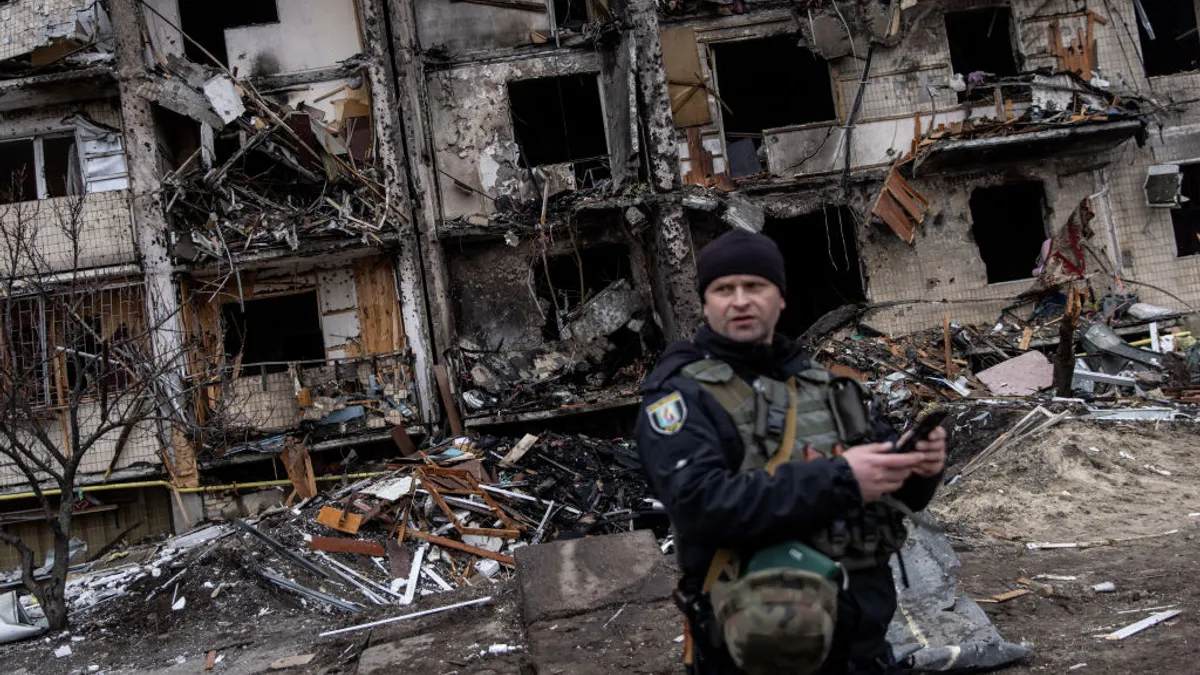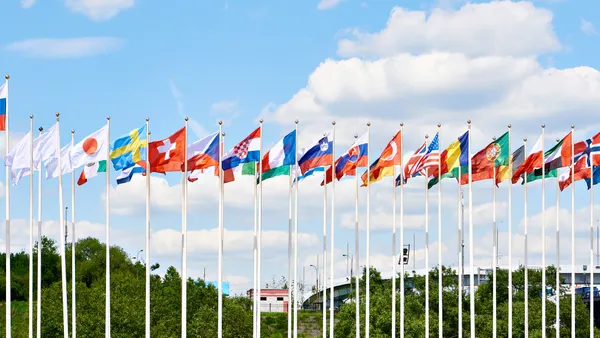Dive Brief:
- The impact from the Russian invasion of Ukraine confronts auditors with a range of challenges, from tracking greater risks of fraud and cyberattacks to assessing materiality and any need to alter internal controls, the Public Company Accounting Oversight Board (PCAOB) said.
- Sanctions on Russia and other efforts to avert harm to Ukraine "are likely to have a wide range of effects on many companies with business ties in the region, including supply and distribution chain disruptions, materials and other inventory shortages, significant increases in prices of raw materials and borrowing costs, and loss of liquidity," PCAOB said. It also flagged volatility in equity, commodity and foreign exchange markets.
- Completing audits may prove difficult, PCAOB said, noting that "obtaining sufficient appropriate audit evidence to support the auditor’s opinion on the financial statements may take longer or require more audit effort. Nonetheless, auditors are required to comply with PCAOB standards."
Dive Insight:
Since the onset of the coronavirus two years ago, CFOs have confronted a host of challenges, including supply chain bottlenecks, the rising cost of producer prices, production glitches, pressure to raise prices and a need to redraw plans for risk management.
"Russia’s war against Ukraine piles a host of new risks onto the pre-existing ones created or exacerbated by a once-in-a-century pandemic," World Bank Chief Economist Carmen Reinhart said April 1. Writing in Barron’s, Reinhart warned of "the potential fallout in financial markets from a likely default by Russia at some point."
Since the start of the invasion on Feb. 24, U.S. and European countries have sought to punish the Kremlin through such measures as export controls and restrictions on financing. They have shut down the Nord Stream 2 pipeline and targeted many of Russia’s biggest companies and banks.
Allegations during the weekend of atrocities in Ukraine prompted the U.S. and some European officials to press for tougher economic sanctions, with French President Emmanuel Macron on Monday calling for a ban on E.U. imports of Russian oil and coal.
As the cost of sanctions mount, the possibility of default shadows Russia’s sovereign and corporate debt, with risks "clustered on what we don’t see and can’t quantify," Reinhart said. A default by Russia in 1998 took down Long-Term Capital Management, prompting the Federal Reserve to backstop capital markets, she noted.
PCAOB, the federal watchdog of auditors for public companies, alerted auditors to several forces that may increase the risk of material misstatements.
For example, a company that continues to rely on Russian counterparties — or severs ties with them — may struggle with supply chain disruptions and fail to meet its contractual obligations.
Projected earnings may fall because of a boycott of a key supplier, an end of sales to a leading customer, or abandonment of investments in Russian companies, PCAOB said.
Companies that continue doing business in Russia, or with sanctioned Russian citizens, may face reputational damage or boycotts of their products and services, PCAOB said.
Disruption from the invasion "may also create opportunities, incentives and pressures to commit fraud," PCAOB said. Companies may hide their business with sanctioned entities or exaggerate financial results in order to meet expectations.
Hackers may seize on wider opportunities to launch ransomware attacks or exploit weaknesses in companies’ information systems, according to PCAOB. "It is important for auditors’ risk assessment procedures to include an understanding of how companies are addressing cybersecurity risks," focusing on any distortions to financial reporting.
Auditors may need to revise their procedures by implementing new or extended audits, PCAOB said. They may also need to reassess materiality and tolerable misstatement, and review company controls.
"Control owners may no longer have access to information necessary to complete their assigned roles, which may lead to implementation of new or modified processes and controls," PCAOB said.












